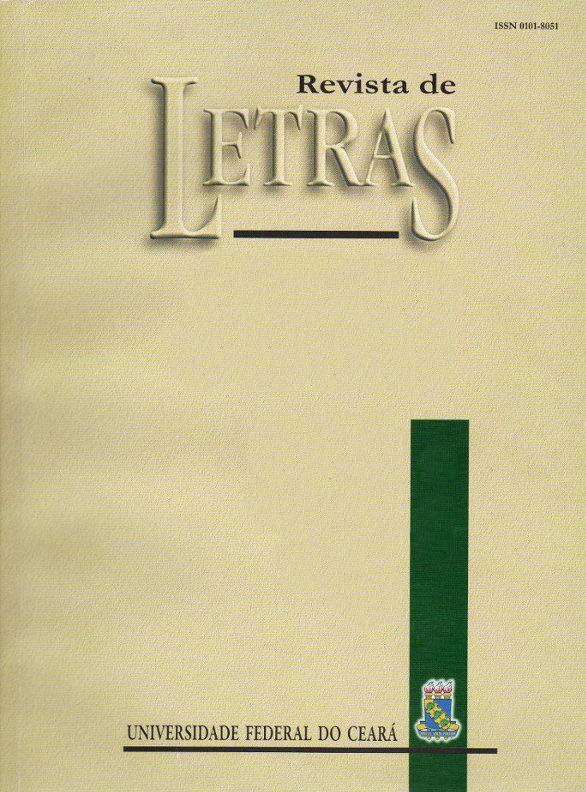The TEMPORAL FLEETINGNESS IN LIÇÕES DE TEMPO, BY ROBERTO PONTES
Keywords:
tempo, poesia, lições de tempoAbstract
This article is part of our doctoral thesis, still under construction, and our objective will be to present some reflections on “Tempo do fui,” the first part of the poetic work Lições de Tempo (2012) by Roberto Pontes. Immediately, the general tripartite structure of the work will reveal the existence of a linear and unitary conception of time that permeates all the poems and allows for the establishment of a classical topos, the tempus fugit or time flies, related to the idea of temporality as an uninterrupted flow, constantly moving and provoking inevitable changes. The confirmation of this topical mark will be verified through the analysis of some residual elements, such as the symbols present in poems from the first part of the book (flower, butterfly, wrinkle). We will also proceed with the comparison of Pontes’ texts with some occurrences in the Western lyrical tradition, such as Gregório de Matos, Fernando Pessoa, and Carlos Alberto Bessa. The selection of these poets will serve to demonstrate the existence of the topos of fleetingness in different eras and aesthetics, emphasizing the persistence of a residual universal tradition to which the work under analysis belongs. Finally, to support the research, we will resort to the ideas of authors such as Aristotle (1995), Pedro Lyra (1995), Saint Augustine (2002), Francisco Achcar (2015), Heidegger (2015), and Bergson (2020).
Downloads
Downloads
Published
How to Cite
Issue
Section
License
Copyright (c) 2024 Leonildo Cerqueira Miranda, Elizabeth Dias Martins

This work is licensed under a Creative Commons Attribution 4.0 International License.
Autores que publicam nesta revista concordam com os seguintes termos:- Autores mantêm os direitos autorais e concedem à revista o direito de primeira publicação, com o trabalho simultaneamente licenciado sob a Licença Creative Commons Attribution que permite o compartilhamento do trabalho com reconhecimento da autoria e publicação inicial nesta revista.
- Autores têm autorização para assumir contratos adicionais separadamente, para distribuição não-exclusiva da versão do trabalho publicada nesta revista (ex.: publicar em repositório institucional ou como capítulo de livro), com reconhecimento de autoria e publicação inicial nesta revista.
- Autores têm permissão e são estimulados a publicar e distribuir seu trabalho online (ex.: em repositórios institucionais ou na sua página pessoal) a qualquer ponto antes ou durante o processo editorial, já que isso pode gerar alterações produtivas, bem como aumentar o impacto e a citação do trabalho publicado (Veja O Efeito do Acesso Livre).

.png)





.png)
